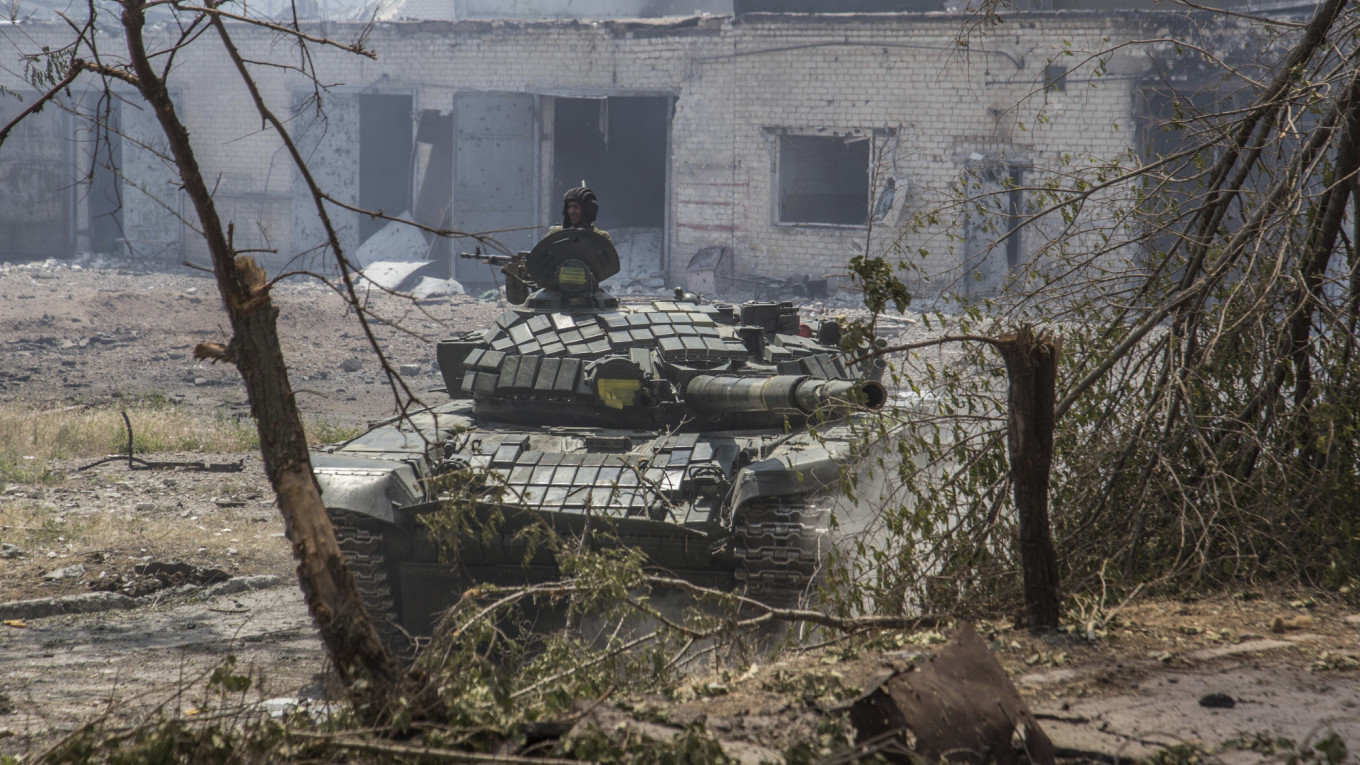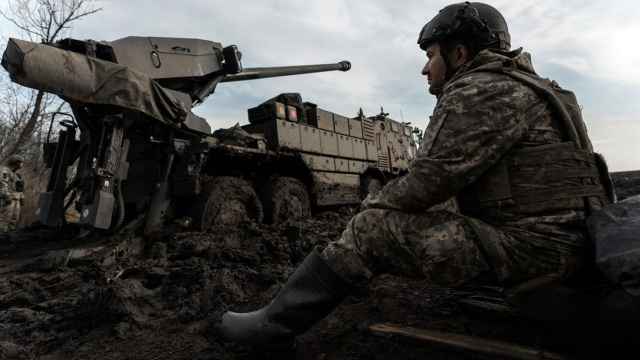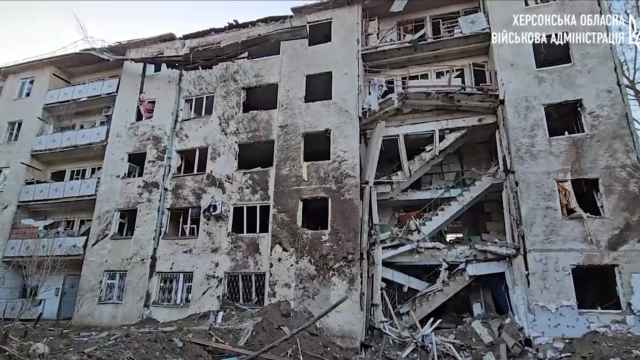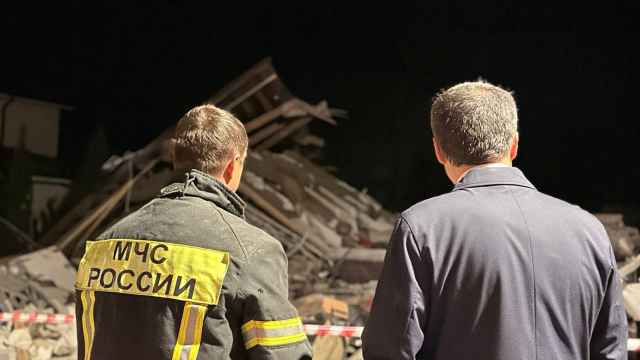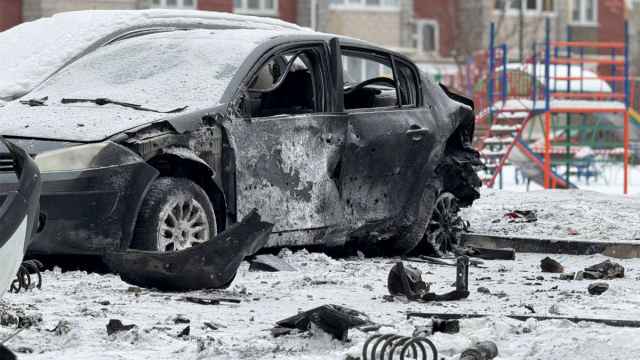U.S. President Joe Biden announced $1 billion worth of new arms for Ukraine Wednesday as Pentagon officials defended the pace and quality of supplies as meeting Kyiv's battlefield needs.
Ukrainian troops shelled Russian targets on the frontlines in the eastern Donbas region with newly arrived French Caesar howitzers, as Ukraine officials met in Brussels with Western allies, hoping to obtain more ammunition and more lethal weapons to turn the tables on the invaders.
Russian forces continued to pressure Kyiv's troops in Donbas, as Russian President Vladimir Putin held new phone discussions with Chinese leader Xi Jinping, in which Xi expressed support for Russia's "sovereignty and security."
The newest U.S. arms package features 18 more 155mm howitzers and 36,000 rounds of ammunition for them; two land-based Harpoon anti-ship missile systems; and additional rockets for four Himars precision rocket artillery systems that Ukraine is soon to put in the field.
Biden said that he told Ukrainian President Volodymyr Zelensky in a phone call Wednesday that "the United States will stand by Ukraine as it defends its democracy and support its sovereignty and territorial integrity in the face of unprovoked Russian aggression."
"The bravery, resilience, and determination of the Ukrainian people continues to inspire the world," Biden said.
Zelensky said later in his evening address to the people of Ukraine that he was grateful for the package.
"The United States announced new strengthening of our defense, a new $1 billion support package," Zelensky said. "I am grateful for this support, it is especially important for our defense in Donbas."
Battle of Severodonetsk
Russian forces appeared close to consolidating control of Severodonetsk, a key industrial city in the Lugansk region that Ukraine troops have fought determinedly to hold.
Capturing Severodonetsk has become a key goal for the Russians, as it would open the road to Sloviansk and another major city, Kramatorsk.
The Russians have destroyed the three bridges spanning a river between the city and Lysychansk just to the west, which is "likely to isolate the remaining Ukrainian defenders within the city from critical lines of communication," according to the U.S. Institute of War.
“Severodonetsk is a key point in the defense operation system of Lugansk region," Valeriy Zaluzhny, the Ukraine military's commander-in-chief, said Wednesday on Telegram.
"The enemy has concentrated its main strike forces in the north and is trying to attack in nine directions at once," he said, calling the fighting "fierce."
From an elevated position in Lysychansk, an AFP team saw black smoke rising from the Azot chemical factory in Severodonetsk and another area in the city.
The Ukrainian military was using the high ground to exchange fire with Russian forces across the river.
"It's scary, very scary," 83-year-old Lysychansk pensioner Valentina said. "Why can't they agree at last, for God's sake, just shake hands?"
Seeking more arms
At another location in eastern Ukraine, Ukrainian forces paraded and fired their new French-supplied truck-mounted Caesar howitzers.
"This system is primarily very manoeuvrable and mobile," said the commander of the system, who gave his name only as Glib. "In modern warfare, this is a crucial factor.
In Brussels, Ukrainian defense minister Oleksiy Reznikov and other officials met with some 50 countries of the Ukraine Defense Contact Group at NATO headquarters asking for a surge in weapons and ammunition.
"Brussels, we are waiting for a decision," Mykhaylo Podolyak, a senior aide to Zelensky, said ahead of the meeting, warning that Ukraine's artillery is outgunned 10 to one by the Russians.
"Ukraine is really in a very critical situation and therefore, it's an urgent need to step up," NATO chief Jens Stoltenberg told journalists.
Top U.S. defense officials defended the pace of arms deliveries while stressing that some weapons Kyiv wants, like the Himars systems, require weeks of training before they can enter battle.
"We really are focused on what the leadership believes that its current needs are in this fight," said U.S. Defense Secretary Lloyd Austin.
"And I think that the international community has done a pretty good job of providing that capability. But it's never enough," he said.
The chairman of the Joint Chiefs of Staff, General Mark Milley, insisted that on every request from his Ukraine counterpart, "as rapidly as possible we get a source through the international community, through the United States and our allies and partners, and we get it done as rapidly as we can."
Putin speaks to Xi
Putin meanwhile underscored that he was not as isolated internationally as his foes would wish with a call with China's Xi, their second reported call since Russian attacked Ukraine on Febr. 24.
The Kremlin said that the two leaders agreed to ramp up economic cooperation in the face of "unlawful" Western sanctions.
Chinese state broadcaster CCTV said Xi tol Putin that Beijing is "willing to continue to offer mutual support (to Russia) on issues concerning core interests and major concerns such as sovereignty and security."
China has refused to condemn Moscow's invasion of Ukraine and has been accused of providing diplomatic cover for Russia by criticising Western sanctions and arms sales to Kyiv.
A Message from The Moscow Times:
Dear readers,
We are facing unprecedented challenges. Russia's Prosecutor General's Office has designated The Moscow Times as an "undesirable" organization, criminalizing our work and putting our staff at risk of prosecution. This follows our earlier unjust labeling as a "foreign agent."
These actions are direct attempts to silence independent journalism in Russia. The authorities claim our work "discredits the decisions of the Russian leadership." We see things differently: we strive to provide accurate, unbiased reporting on Russia.
We, the journalists of The Moscow Times, refuse to be silenced. But to continue our work, we need your help.
Your support, no matter how small, makes a world of difference. If you can, please support us monthly starting from just $2. It's quick to set up, and every contribution makes a significant impact.
By supporting The Moscow Times, you're defending open, independent journalism in the face of repression. Thank you for standing with us.
Remind me later.


